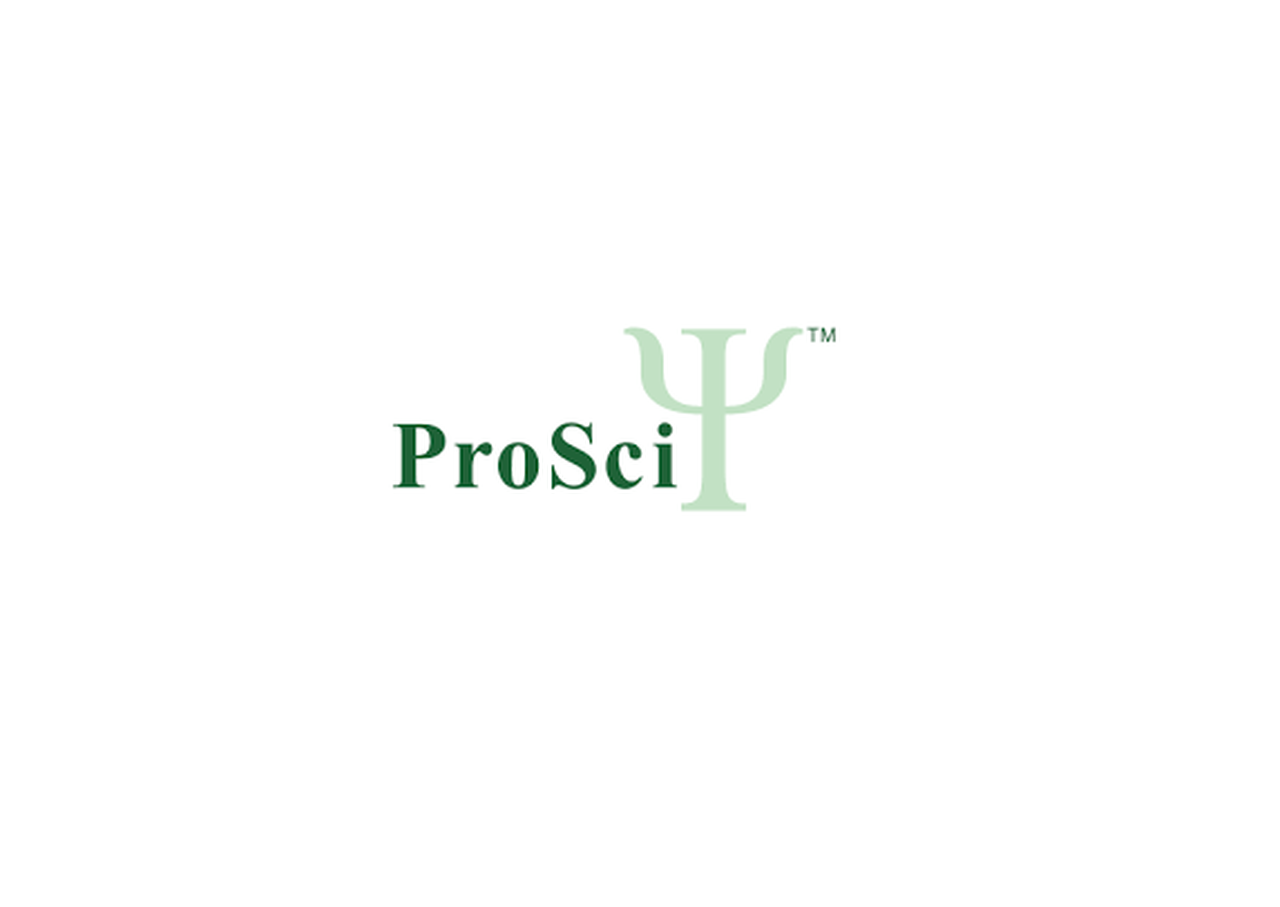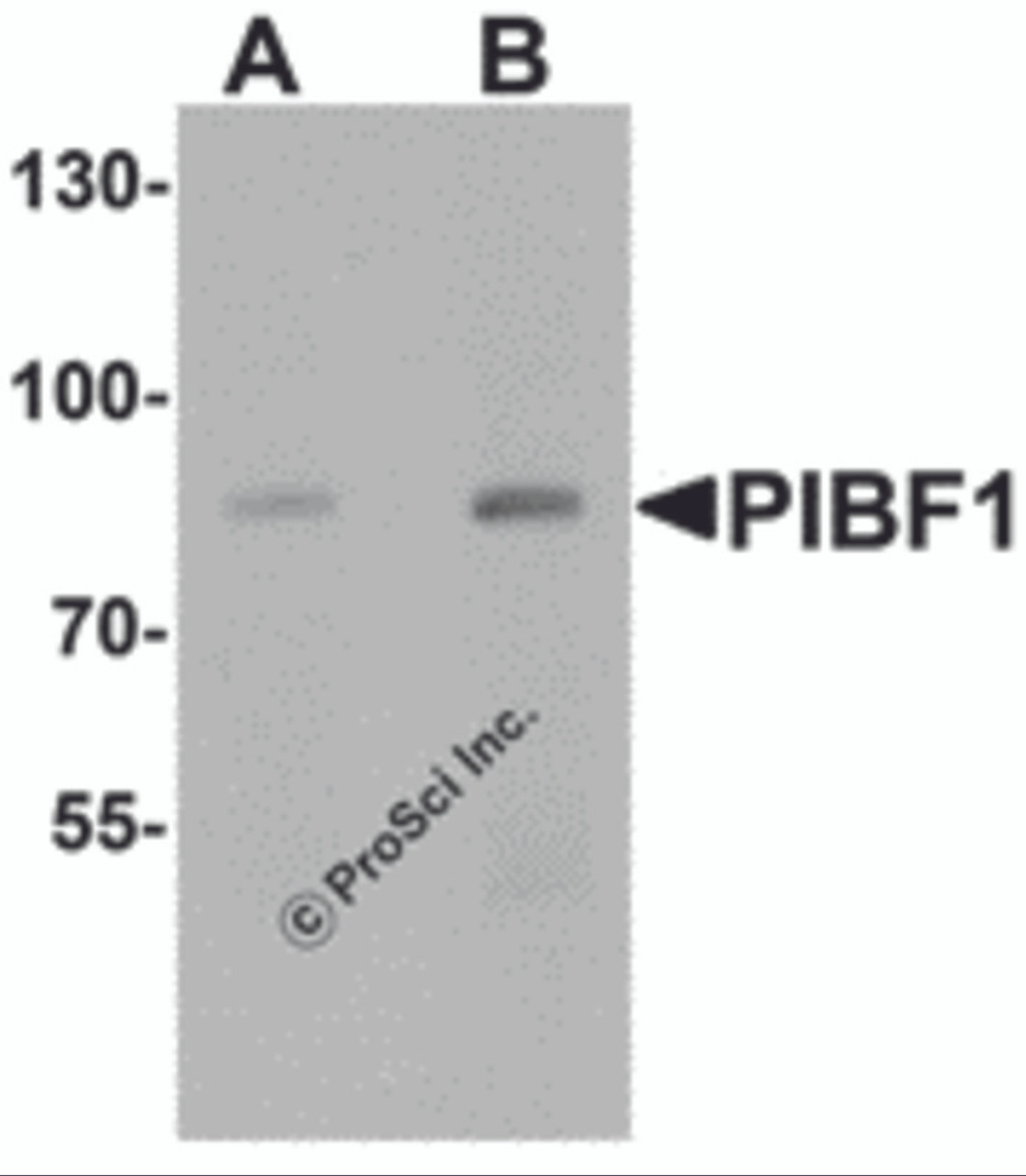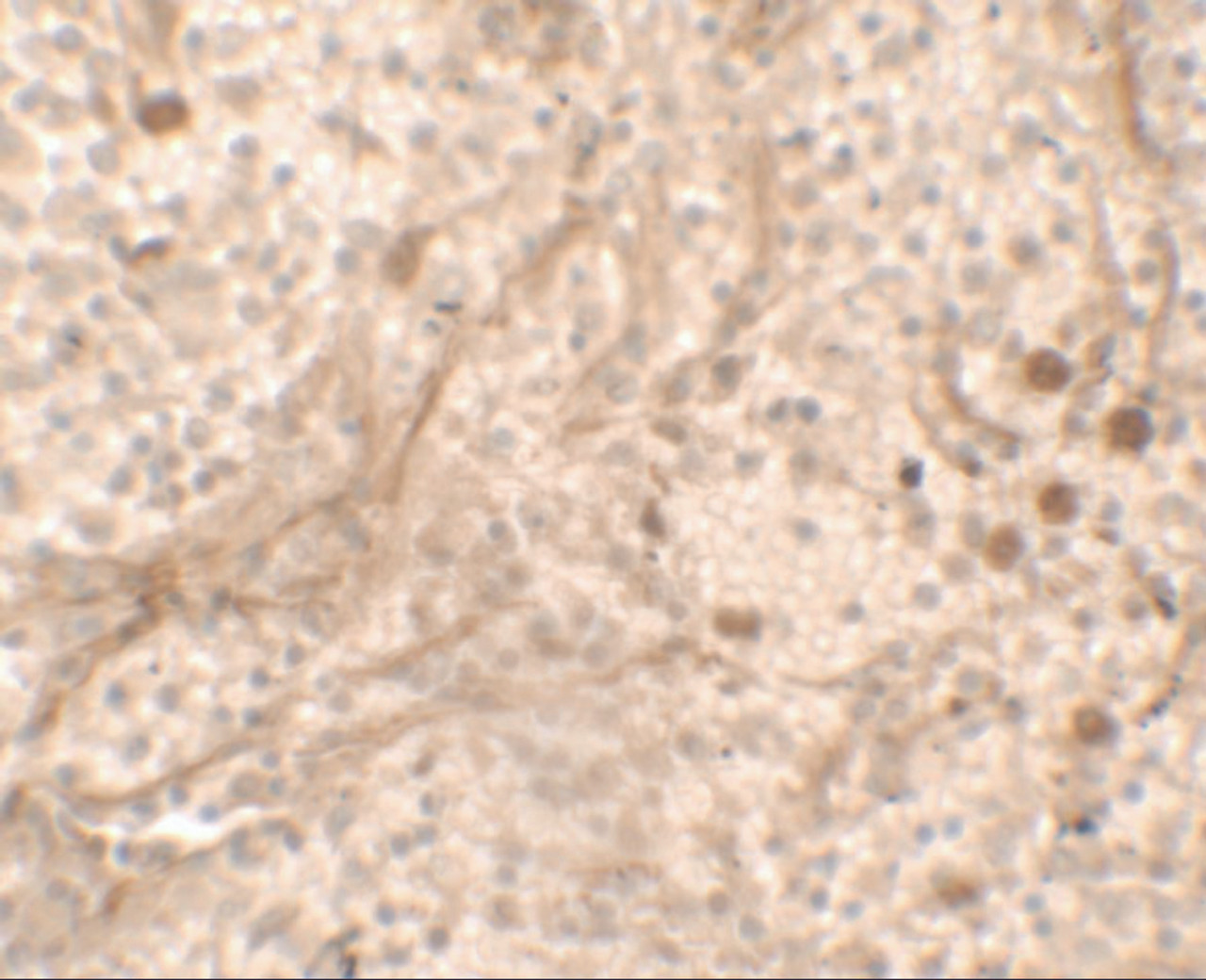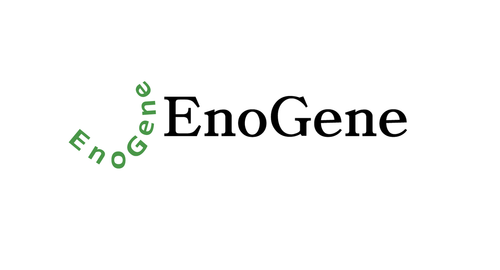Product Description
PIBF1 Antibody | 7237 | ProSci
Host: Rabbit
Reactivity: Human, Mouse, Rat
Homology: N/A
Immunogen: Rabbit polyclonal PIBF1 antibody was raised against a 15 amino acid peptide near the carboxy terminus of human PIBF1.
The immunogen is located within amino acids 610 - 660 of PIBF1.
Research Area: Signal Transduction
Tested Application: E, WB, IHC-P, IF
Application: PIBF1 antibody can be used for detection of PIBF1 by Western blot at 1 - 2 μg/mL.
Antibody validated: Western Blot in human samples; Immunohistochemistry in human samples and Immunofluorescence in human samples. All other applications and species not yet tested.
Specificiy: Multiple isoforms of PIBF1 exists as a result of alternative splicing event.
Positive Control 1: Cat. No. 1309 - Human Placenta Tissue Lysate
Positive Control 2: Cat. No. 10-901 - Human Spleen Tissue Slide
Positive Control 3: N/A
Positive Control 4: N/A
Positive Control 5: N/A
Positive Control 6: N/A
Molecular Weight: 83 kDa
Validation: N/A
Isoform: N/A
Purification: PIBF1 Antibody is affinity chromatography purified via peptide column.
Clonality: Polyclonal
Clone: N/A
Isotype: IgG
Conjugate: Unconjugated
Physical State: Liquid
Buffer: PIBF1 Antibody is supplied in PBS containing 0.02% sodium azide.
Concentration: 1 mg/mL
Storage Condition: PIBF1 antibody can be stored at 4˚C for three months and -20˚C, stable for up to one year.
Alternate Name: PIBF1 Antibody: PIBF, CEP90, C13orf24, PIBF, Progesterone-induced-blocking factor 1
User Note: Optimal dilutions for each application to be determined by the researcher.
BACKGROUND: PIBF1 Antibody: PIBF1 is synthesized during pregnancy in response to progesterone by T lymphocytes. PIBF1 inhibits arachidonic acid release, controls NK activity, and modifies the cytokine balance exerting an anti-abortive effect. It contains a leucine zipper motif, a basic zipper sequence, a PEST sequence, a nuclear localization signal, an ER membrane retention signal and N-glycosylation and phosphorylation sites. PIBF1 is significantly higher in healthy pregnant women than in women at risk for premature pregnancy termination. Full-length PIBF1 is associated with the nucleus and functions as a transcription factor, whereas secretion of shorter forms which may act as cytokines is induced by activation of the cell.
 Euro
Euro
 USD
USD
 British Pound
British Pound
 NULL
NULL












